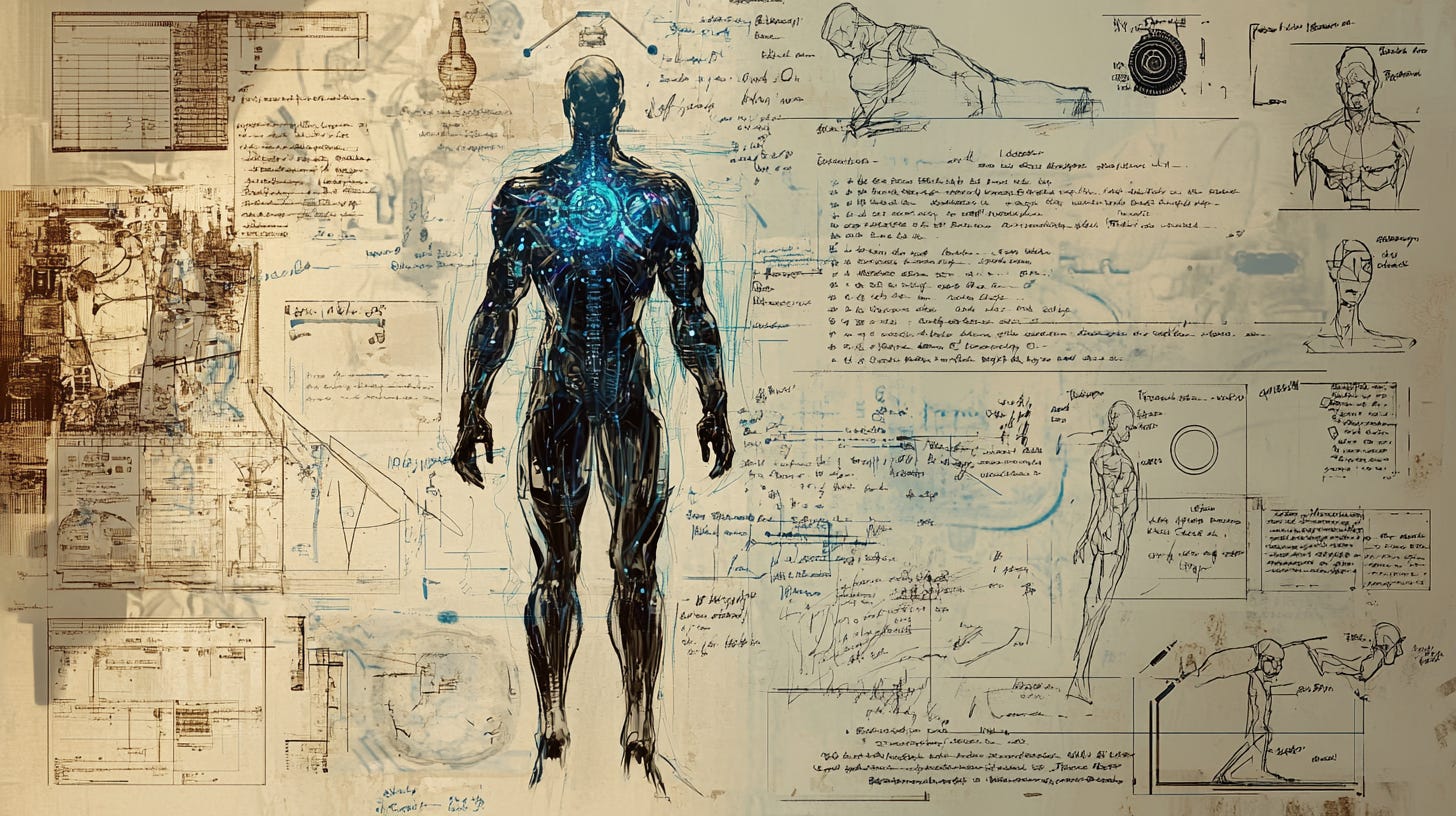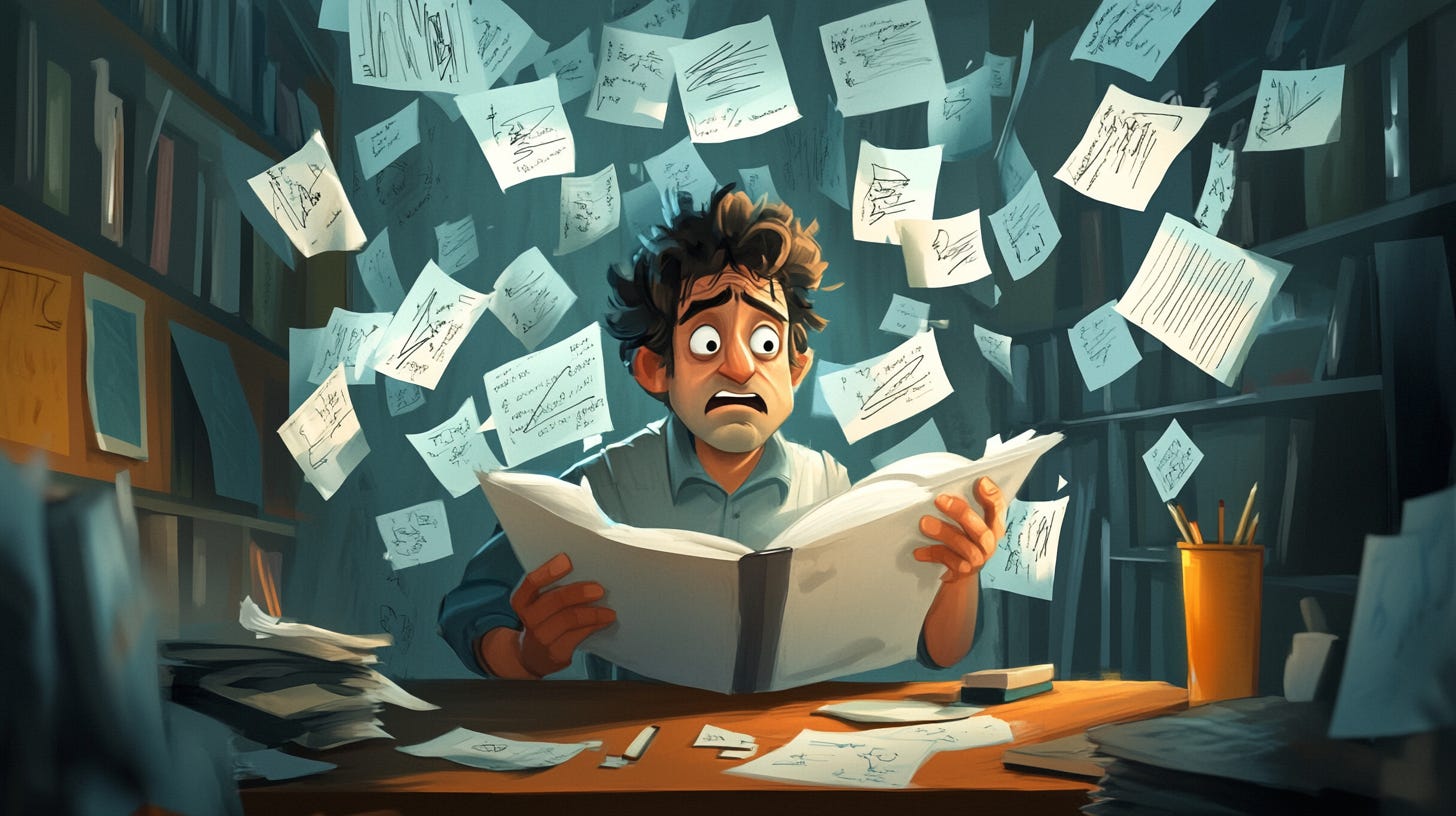Dialogue That Doesn’t Suck Part II
Top Three Most Important Things to Consider When Writing Dialogue
Hello and welcome back! In part one of this blog, I covered the most common mistakes to avoid when writing dialogue. Now, I want to focus on the top three most important things everyone should consider. This doesn’t cover everything, but these have always been super helpful, to me, and honestly, I don’t think I can write dialogue without factoring them into my process.
So with that said, let’s get into it!
Consideration #1: The Design of Your Character Engines:
This is the foundation for all of my decisions regarding character development. A character engine is just my pretentious way of describing the compilation of all the primary components of a character that, when combined, allows me to get them to move and take specific action towards achieving or not achieving some goal that is meaningful to the overall point of my story. This includes what their physical & moral weakness is, the lie they tell themselves, their desire, and their need.
The dynamic relationship between these components helps me develop good choices for my characters such as what they do within the story or how they respond to certain people and situations. It even helps me better understand how they say things.
Using a character engine is also a good way to ensure my characters have unique voices so they don’t all sound like bouncing boards to each other. That’s a common mistake that some writers make, and that’s because they haven’t taken the time to really define their characters.
Now, everyone has their unique way of building characters. But for me, the character engine is my absolute preferred method. It’s just a really simple way to break the main parts of your character down. Plus, it gives you much better control over how they land on page and progress throughout the story. This is because the character engine is a map of your character change.
To better illustrate this, let’s take these two character engines below and connect them to a dialogue exchange. This will hopefully give you a better sense of the relationship between character engines and dialogue choices:
Logline: A clumsy groundskeeper at a university is given one last chance to prove himself when a new dean enters the job and gives him the ultimatum to build his own go-kart and win the annual staff race or risk losing his job.
Character Engine #1
Name: Ernest P. World
Physical Weakness: Clumsy, dim-witted, facetious, know-it-all, nice, and gullible.
Moral Weakness: He believes people are perfect the way they are.
Lie They Tell Themselves to Hide From Moral Weakness: Everyone thinks I’m an idiot, but they don’t understand me.
Desire: To win the staff go-kart race.
Need (what he needs to learn): People aren’t perfect and must learn to listen to others and evaluate their shortcomings so they can live a better life.
Character Engine #2
Name: Dean Louis Champion
Physical Weakness: Straight-edge, rule-follower, stickler, constantly needs to prove himself, looks down on others, and egotistical.
Moral Weakness: He believes that people are imperfect, but should be perfect and pushed to be that way.
Lie They Tell Themselves to Hide From Moral Weakness: I’m doing what is in the best interest of others, and though I’m harsh, people who survive my expectations become better people.
Desire: To push Ernest to do better by forcing him to build his own go-kart for the race or risk losing his job.
Need (what he needs to learn): No one is perfect and we should be supporting each other to make ourselves less imperfect rather than attack ourselves to weed out those who need more help.
Dialogue Exchange:
Ernest: Well, I know, but sometimes ya just gotta improvise to make the leaking stop, ya-know what I mean?
Dean: I do...But when your improvisations flood our AWARD-WINNING botanical garden! Mr. World-
Ernest: - Uh, just Ernest.
Dean: ...Ernest. Let me make this perfectly clear. You are a fool, no. You are a stupid, stupid fool, and because of your negligence, my first impression is ruined!
(beat)
Dean: I have no choice but to fire you.
Ernest: “What?!”
Dean: “You have till the end of the day to clear your...shack, or whatever it is.”
Ernest: “But, sir. Dean, I, I can’t lose this job. Please. It means everything to me! ”
Dean: “That isn’t my problem. Now, please. Leave.”
Dean goes back to the paperwork as Ernest’s face sinks in. He slowly turns around and leaves.
Dean: “This is for your own good.”
Ernest stops at the door but doesn’t turn around. He sighs before walking out.
___________________________________________________________
That was quite a bit to digest. I apologize, but this is important to understand. The above dialogue sequence is part of a setting and set-up for the first act, in which a stuck-up dean fires Ernest, the groundskeeper, for accidentally flooding this expensive botanical garden. Now, let's examine the choices I made to see how they matched their character engines.
If you notice, the very first thing Ernest did was lecture The Dean on the need to improvise even though he’s in trouble and shouldn’t be talking right now. Ernest does this because he’s a know-it-all, which is part of his physical weakness. And the fact that he’s lecturing the head of the University after flooding the botanical garden, screams clumsy and dim-wittedness. Then he interrupts the dean mid-sentence to let him know that he can call him Ernest instead of Mr. World, which suggests that he’s probably also facetious. We can totally see Ernest being at a funeral and saying the wrong joke at the wrong time.
Now, let's look at the Dean’s dialogue. It’s clear he’s angry and rightfully so, but he goes further by calling Ernest a stupid fool because he’s ruining his first impression as the new dean. Then when Ernest is fired, he tells him to clean out his shack. He doesn’t call it a workspace. He calls it, “...a shack or whatever it is.” like it’s something disgusting and far beneath him. And all of this is said punctually, indicating that he’s educated and a man of sophistication. These choices directly align with The Dean’s character engine in that he’s a man who looks down on others, is straight-edged, believes in perfection, pushes himself and others to be that way, and is egotistical.
But the most revealing part is the last line when The Dean says, “This is for your own good.” He didn’t have to say this, but he did because deep down he believes that people should be pushed to perfection. That dialogue reveals a hint of, “Tough love”, suggesting that he’s pushing Ernest to do better.
Both characters are also at the point in their arcs where they are still lying to themselves about their beliefs, which is expressed in their dialogue choices. So, my choices match the right point in the plot (Act I). Ernest believes he’s perfect just the way he is, and the Dean believes that Ernest is imperfect and needs tough love without any support.
So as you can see, the character engine is like a base-layer protocol that defines the tone, personality, and unique modus operandi your characters embody, which makes it easier to carry them through your story arc. By having intimate knowledge about your character’s, “Engine”, you can make way better choices in how you design their dialogue.
The process of creating a character engine can certainly be a mental strain. Fortunately, as some of you know, my brother and I have developed an app that helps you navigate it more easily. In fact, the example I provided above was made using our Character Builder Tool from Story Prism. It’s great because you can plug the information in that you need or generate some possible ideas quickly if you’re stuck in a jam. Check it out if you haven’t already.
Consideration #2: Context of the Situation
Okay, so the next thing you should consider when writing dialogue is the context of the situation within the scene and outside of it. In other words, you should factor in the following questions to contextualize the dialogue:
What happened before the scene started?
What is happening during the scene?
What do the characters believe will happen?
What Happened Before the Scene Started
Of course, many things occurred before the scene you’re working on, even if it’s the first scene in the story. While it’s not important to know everything that happened in your character’s life, it is important to have a sense of what they did or went through since what they did in the past tends to shape and influence their decisions in the present.
As a writer, you must understand what to show and what not to show, as both drive the story. Writers can’t possibly show everything their characters do in and outside of the story, so they have to rely on dialogue to fill in those gaps. But sometimes you want the characters to withhold information that isn’t shown to the audience, which means you need to know that so you know how the character will withhold that information from others.
Let's say you have a scene with two friends at a bar. One of them is faithfully married and the other is a sexaholic playboy. In this case, it may not be important at all for you to know what that best friend was doing before meeting up. But it might be important if it relates to driving the scene and the tension of the story. Perhaps this is where the main character begins to suspect that his playboy friend is having an affair with his wife.
In that case, what that playboy did before this scene may be relevant even if you don’t show them hooking up. This way, you can add the right subtext to the dialogue exchanges. If you don't know these key things about your characters, it becomes harder to create the right dialogue for these moments.
What is Happening During a Scene
Understanding what happens during the scene is another important question to consider when making dialogue decisions. It sounds obvious, but you’d be surprised by how few novice writers think about this.
Let’s say your main character is at his father’s funeral. Someone approaches him and reveals that his father is still alive. If they want to discuss it further, he should meet them tomorrow. The person leaves, and the main character stands there, shocked.
Well, that’s a hell of a bombshell to lay on someone, especially at their father’s funeral. So it makes total sense that they would be in shock. But letting the person leave without stopping them to demand more answers feels pretty off. Even if revealing these answers is unimportant, the main character should still have a stronger reaction. Otherwise, the moment will be too unbelievable. This should get the main character worked up and lead him to demand answers. If he just stands there in shock, it makes the whole situation feel strange, and well...unreal.
So always be aware of the moment you’re in when creating dialogue. It seems obvious, but it’s very easy to mess this up if you’re not constantly thinking about the full context of the situation. Don’t fall victim to tunnel vision by only focusing on the main point of the scene. Focus on the entire context of that scene to make that main point feel real.
What the Characters Believe Will Happen in the Future
Then there’s knowing what the characters believe will happen whether those things happen or not. This is very important because that can also influence what your characters say and do within the current scene you’re working on. Let’s say your story is an action movie, and the characters are making their final plan to stop the bad guys from infiltrating their safe house.
They’re outgunned, outnumbered, and just went through hell. But they look relaxed and bored instead of nervous. Okay, that’s a problem because how they’re behaving does not match what they’re expecting to happen. They should be scared shitless. If you don’t consider what your characters expect will happen, you may forget to add in the right tone for your dialogue. This was an obvious example that’s hard to miss, but sometimes it isn’t so obvious. So always factor in the future when writing your dialogue.
Consideration #3: Known/Unknowns/Things Hidden/Not Hidden
No matter what scene you’re working on, always factor in what each character knows and doesn’t know. When your characters speak, there will be information that is known and unknown to them. Therefore, it either doesn’t need to be expressed or if it does for the sake of the audience and moving the story forward, it needs to be expressed in a way that factors in what the person knows and doesn’t know.
Let’s say someone wants to get back at a bully and tells his friend that he’s gonna slash the bully’s tires. His friend then responds, “Billy is not gonna like that at all. He’s gonna kill you.” That’s a bit of an off-statement given the context. These two friends know that Billy is a big guy who is very aggressive, so they know Billy will kill them if he finds out they slashed his tires.
Now as a writer, we tend to get worried about whether or not we’re giving people enough context to understand the story, which is why you’ll find statements like this in scripts written by less seasoned writers. A new writer might be worried that the audience won’t understand the stakes since they’ve never introduced Billy the Bully, so they’ll feel compelled to spell it out in the dialogue. But that can be a grave mistake.
Instead of spelling it out, you could have the main character explain what he’s going to do and then have his friend give a worried look while saying, “I don’t know, man. Come on, just forget about it, let’s go home.” None of this spells out the stakes, but all of it implies a considerable amount of danger because you’re providing that subtext in the words that suggest his friend is nervous. And, of course, if your main character is also nervous while making this daring decision, it will further cement the point that Billy is dangerous and that slashing his tires carries a big risk for them.
This is explaining without explaining, using subtext based on what the characters know and don’t know. They know Billy is dangerous, so all this information should be expressed through subtext, not direct dialogue.
Exploiting what the characters know and don’t know is good for creating natural-sounding dialogue and a great way to build tension, whether it’s comedic or psychological. Take, for instance, a bomb under the table. Maybe the audience knows but the two characters sitting at the table don’t know. Without tension-building music or anything, you can imagine how unnerving that would be for the audience to have to sit here and watch this dialogue exchange unfold knowing that within minutes this bomb will go off.
But maybe you want to increase the emotional tension between the characters so you write in a way that shows they both know there’s a bomb under the table. One wants it to go off while the other wants to disarm it. Or perhaps one knows about the bomb while the other is oblivious. But since the audience knows, the tension can still build.
There are many ways to play around with what the characters know and don’t know to induce tension and drive the story, naturally. But regardless of how you do it, it’s important to consider these variables if you want to add the right dialogue with the right subtext to drive your story in a way that feels real. Without these considerations, you’re liable to say something that could flatten the tension or even throw the whole scene off because it doesn’t sound the way you might expect it to given the context of the situation.
Conclusion
So there you have it. These are pretty much all the main things I consider when writing dialogue. It’s a lot to factor in, making it one of the hardest things to do in screenwriting. And, it’s something you can’t screw up...Well, you can, but it’ll suck because your readers will cringe and put it down. Bad dialogue takes you out of the story and leads readers to stop reading, which is a death sentence for writers.
Don’t give your readers any reason to put your story down. Take the time to craft your dialogue, and be prepared to re-write it over and over again until it sounds right. That’s just the way it goes, unfortunately.
Anywho. Hope you all got a lot out of this, and as always, best of luck in your creative endeavors!
__________________________________________
Story Prism,
















